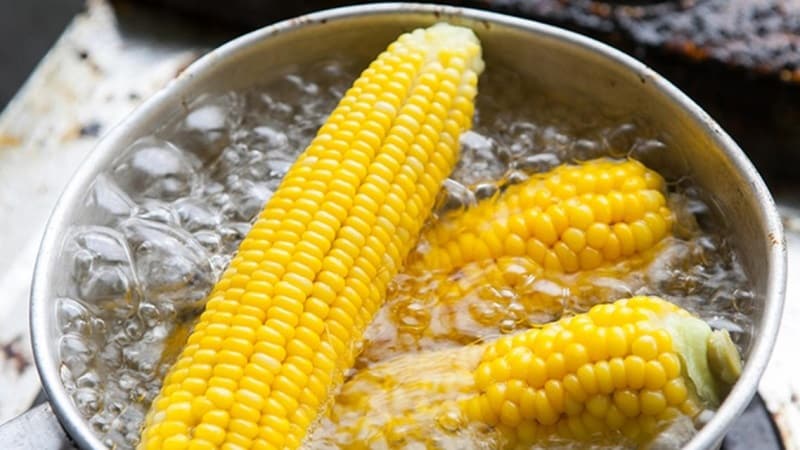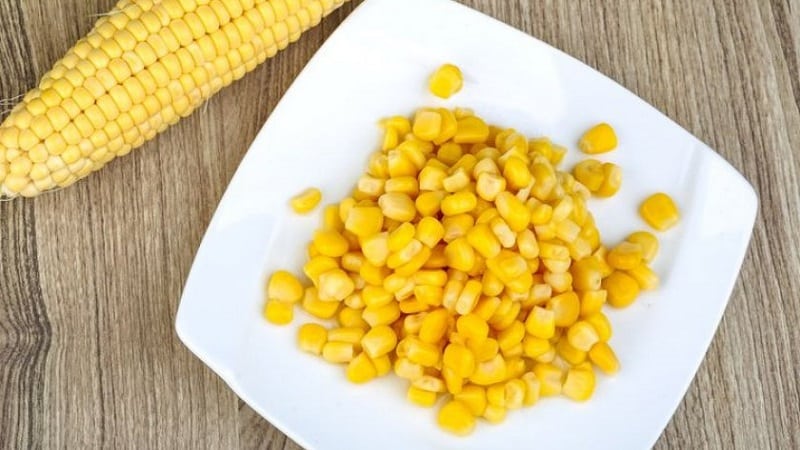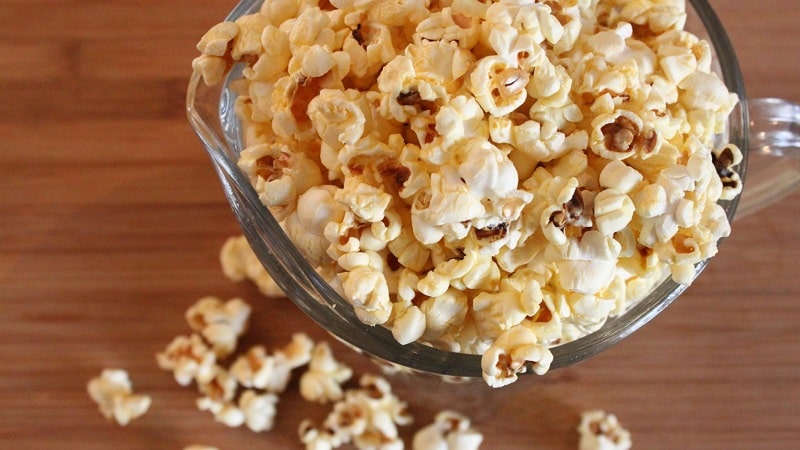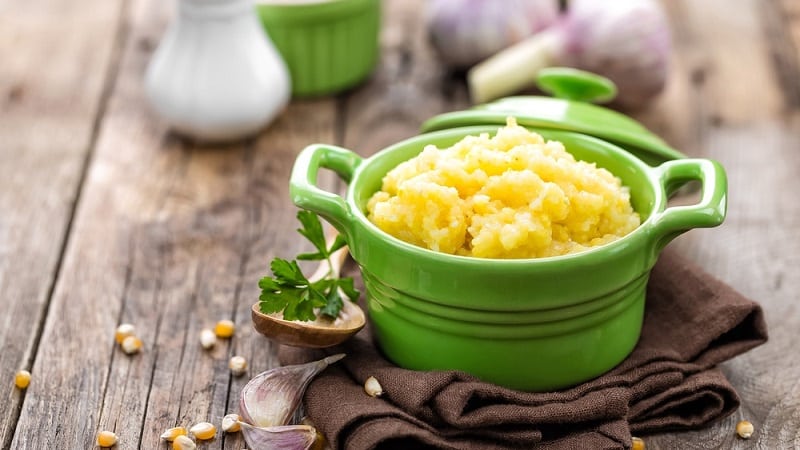Is it possible to eat boiled corn with pancreatitis: arguments for and against and rules of consumption
Corn is a product that benefits the body when consumed correctly. The cereal has a rich chemical composition, perfectly saturates and helps to improve the digestion process. However, despite its beneficial properties, it also has a number of contraindications.
In this article we will touch on the topic of the possibility of consuming boiled, canned corn and corn snacks for pancreatitis.
Boiled corn for pancreatitis
Pancreatitis is inflammation of the pancreas. The organ is responsible for producing insulin and enzymes for breaking down food. Bad habits, abuse of fried, spicy and fatty foods, poisoning and injuries lead to disruption of its functioning. Instead of penetrating the duodenum, the enzymes remain in the pancreas and eat away the walls from the inside.
Scientists have discovered a relationship between gallstones and acute pancreatitis. When the ducts of the gallbladder and pancreas flow into the duodenum in one place, there is a high probability of blocking the channel with a stone. The pancreas continues to synthesize secretions, which gradually accumulate, and the pressure in the duct increases. A life-threatening condition develops.
There are two main types of pancreatitis: acute and chronic. Both require immediate treatment. Along with drug treatment, doctors insist on the need to follow a diet.Often it is proper nutrition that helps put the disease into remission.
 There is a list of permitted and prohibited foods for pancreatitis. Is it possible to eat boiled corn with it? The product is prohibited for both acute and chronic illness. Boiled cobs can be consumed in complete remission in small quantities.
There is a list of permitted and prohibited foods for pancreatitis. Is it possible to eat boiled corn with it? The product is prohibited for both acute and chronic illness. Boiled cobs can be consumed in complete remission in small quantities.
Reference. Remission is a period of a chronic disease characterized by a weakening or complete disappearance of symptoms.
Product benefits
You shouldn’t completely give up eating boiled corn with pancreatitis. As soon as the doctor allows the product to be returned to the menu, grains can be added to dishes in small quantities, observing the body’s reaction.
Corn kernels contain fiber, which improves digestive function and intestinal motility, and reduces slagging in the body.
Magnesium and potassium regulate the functioning of the heart muscle and strengthen the walls of blood vessels.
Without B vitamins, the nervous system cannot function effectively. Vitamin E binds and removes free radicals, rejuvenates and prevents the risk of developing cancer.
Harm and contraindications
Coarse fiber requires significant effort from the body to digest the fiber. This increases the load on the digestive tract and pancreas. With pancreatitis, this leads to an exacerbation of the condition.
Direct prohibitions on eating corn in any form include the following gastrointestinal diseases:
- acute and chronic pancreatitis;
- exacerbation gastritis;
- acute stage of gastric and duodenal ulcers.
Use in the acute stage
Acute pancreatitis requires complete abstinence from foods that can aggravate the disease, including corn. Starchy compounds require more enzymes to break down. In this case, the maximum load falls on the pancreas.
Important! The main goal of drug treatment and diet is to reduce the production of enzymes entering the gastrointestinal tract.
In the chronic stage
Lack of timely treatment and a sluggish inflammatory process lead to the disease becoming chronic. But through the joint efforts of the doctor and the patient, it is possible to achieve complete or partial subsidence of symptoms.
Boiled whole corn grains are still prohibited for chronic pancreatitis. In the stage of complete and long-term remission, the patient can afford to enjoy corn kernels and viscous porridge with water in small quantities and only after consulting the attending physician.

Consumption standards
After the condition has stabilized and the unpleasant symptoms have disappeared, corn is gradually returned to the menu. The norm for consumption of boiled grains and porridge is 100 g per day, no more than 1-2 times a week.
Other options
We found out that boiled corn cobs are prohibited in chronic and acute cases of the disease, with the exception of the period of stable remission.
Now let's figure out whether it is possible or not to eat canned grains, cereals and snacks.
Canned corn
Canned corn is considered the most dangerous product for inflammation of the pancreas.
The following is added to the composition of industrial canned food:
- dyes;
- vinegar;
- flavor enhancers;
- citric acid;
- preservatives.
All these components can cause an attack of acute pancreatitis.
Flakes
For their production, premium corn flour, sugar, trans fats, and food additives are used. The result is a high-carbohydrate product with high calorie content.
There are about eight tablespoons of refined sugar per 100 g of glazed flakes. The conclusion is obvious: the quick breakfast beloved by many is not only not healthy, but also dangerous for those who suffer from inflammation of the pancreas.
Popcorn
Popcorn contains a large amount of fiber and is undoubtedly beneficial for the gastrointestinal tract of healthy people. But patients with pancreatitis should be wary of such products because of:
- coarse dietary fiber;
- large amounts of sugar, salt and butter.

Sticks
After processing corn grains to produce sweet sticks, the product completely loses its beneficial properties and contains virtually no dietary fiber. The load on the digestive tract is reduced, but the presence of sugar, dyes and preservatives does not make snacks healthy for people suffering from pancreatitis.
Corn porridge
Corn porridge is not on the list of prohibited foods. To prepare it, use finely ground cereal. Only in this form is the product safe for a diseased pancreas. The porridge is boiled until it becomes a jelly in water for at least 30 minutes. Then the pan is wrapped in a towel and left to infuse.

Read also:
Conclusion
Inflammation of the pancreas requires a special approach to treatment. In the first place is compliance with the diet prescribed by your doctor. Moreover, breaking the rules is strictly prohibited. Corn is one of the foods that will have to be abandoned during therapy and the recovery period.
The peculiarity of pancreatitis is that any, even minor, error in nutrition can cause another exacerbation.